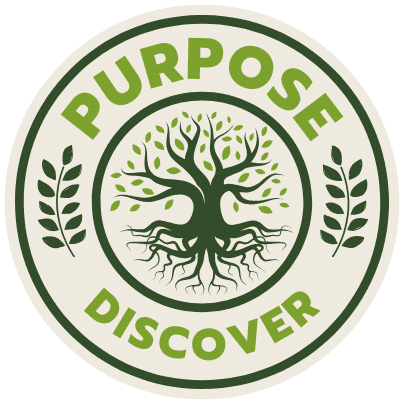You know that nagging feeling—the one that creeps in when you wake up with a sinking gut, or when your chest tightens for no obvious reason? It’s like your body is trying to send you a very rude, very persistent memo: you’re ignoring something important. And that something is often your calling. Yes, that deep pull toward a purpose, a path, or a dream that feels so electric it almost hurts to think about not chasing it.
Most people brush off these sensations as stress, fatigue, or just the “grind” of life. But here’s the kicker: when you push your calling aside, you’re not just risking long-term unhappiness or spiritual drought—you’re also inviting actual, physical pain into your life. It’s like your soul is throwing a tantrum and your body just happens to be the outlet.
Why does turning your back on what you’re meant to do cause real, tangible discomfort? Let’s dig into the weird, uncomfortable, and frankly fascinating ways the cost of ignoring your calling shows up in your body and mind.
The Body Doesn’t Lie: When Purpose Gets Ignored
Think about it. When you’re stuck in a job that sucks the life out of you or living a life that feels off-script, you might start experiencing headaches, neck tension, or even digestive issues. These aren’t random. Science backs this up: chronic stress from living out of alignment with your true self triggers the release of cortisol and adrenaline, the stress hormones. Over time, this flood of chemicals wreaks havoc on your nervous system, muscles, and organs.
Here’s a little story: I once knew a guy, let’s call him Jake, who worked a “stable” corporate job but had dreams of being a musician. Every morning, he woke up with a stiff neck and a pounding headache. Turns out, the physical discomfort was his body’s way of saying, “Hey dumbass, you’re killing your vibe.” The tension was so bad, it felt like carrying a backpack full of bricks everywhere he went. Once Jake finally started playing music again, the headaches and stiffness almost vanished.
It’s not magic or placebo effect. It’s your brain-body connection kicking in. Ignoring your calling sets off a chain reaction—mental frustration leads to physical tension, which leads to exhaustion, and eventually, burnout. That’s the price tag on sitting on your dreams.
Emotional Drain Feeds Physical Pain
You ever notice how sadness or anxiety can make your chest feel heavy or your stomach twist in knots? This isn’t coincidence. Emotional distress manifests physically because emotions are linked to the autonomic nervous system, which controls bodily functions you don’t consciously command—like heartbeat, digestion, and respiration.
When your calling is sidelined, emotional turmoil bubbles up. Frustration, regret, and a gnawing sense of ‘what if’ don’t just haunt your thoughts; they mess with your body’s chemistry. Ever had a day where you felt “off” for no clear reason? That’s your body reflecting the emotional dissonance inside.
People who ignore their passions often report vague aches, fatigue, and a general malaise that doctors can’t pinpoint. This is sometimes called “psychosomatic pain”—physical pain caused or worsened by mental factors. Ignoring your purpose is, essentially, a slow psychological self-sabotage that makes your body pay the price.
The Soul-Sucking Drain of Unfulfilled Potential
Look at it from another angle. Your calling isn’t just a fun hobby or a pie-in-the-sky idea. It’s often tied to your deepest desires, talents, and values—the core of who you are. Shoving that aside is like locking up your soul in a tiny cage. Over time, the frustration of living a life that doesn’t fit can feel like a slow bleed.
The term “existential crisis” gets tossed around a lot, but it’s spot on here. When your actions clash with your essence, it creates cognitive dissonance—a mental tug-of-war that drains energy and motivation. That energy drain makes you feel lethargic, uninspired, and physically sluggish. Your body is the battleground for this internal war.
And it sucks because it’s invisible to most people. They see you as “fine,” but inside, you’re crumbling. Ignoring your calling is a silent thief stealing your vitality one day at a time.
Why We’re So Good at Ignoring It (Even When It Hurts)
Humans are masters of denial and distraction. We tell ourselves, “I’m too busy,” “It’s not practical,” or “I’ll do it later.” Society coaches us to prioritize security and stability over dreams. So, we settle for a life that pays bills but starves our spirits.
But here’s a wild thought: what if our physical pain is a warning system, like a check engine light? What if ignoring the call means the engine is about to blow? When you listen to those aches, that tension, or that heavy heart, you’re actually tuning into vital feedback. You’re being asked to course-correct before things get worse.
The funny part is most of us would rather pop a pill or scroll Instagram than sit with discomfort and ask, “What am I running from?” Facing your calling is scary—it means risking failure, judgment, and uncertainty. But ignoring it can be a slow death, physically and mentally.
How to Start Honoring Your Call Without Losing Your Mind
If this all sounds terrifying, it’s because it is. But there’s light at the end of the tunnel. You don’t have to quit your job tomorrow or sell everything to chase your dream (unless you want to). Small steps count.
Begin by noticing the signals your body sends. That tension in your shoulders, the restless nights, the gnawing dissatisfaction—acknowledge them. Then, ask yourself honest questions: What truly excites me? What would I do if money wasn’t a concern? What parts of me feel stifled right now?
Journaling can help here. Writing is like having a conversation with your soul. It’s where you can start untangling the mess of feelings and desires.
Also, surround yourself with people who support your journey. It’s harder to ignore your calling when you have a tribe cheering you on. If you want some perspective or tools, resources like finding clarity about your life purpose can be a game changer, helping you break down barriers and see the path clearer.
Sometimes, professional help is necessary—therapy, coaching, or mentorship can guide you through the fear and uncertainty. Remember, honoring your calling is a marathon, not a sprint.
The Real Cost Isn’t Just Physical Pain or Stress
Here’s something no one really talks about: when you don’t live your calling, you rob the world of your unique gifts. You might think, “Well, someone else can do it,” but that’s not how it works. Your calling is your fingerprint on the world, your unique flavor that nobody can replicate.
When you bury that, you’re not just hurting yourself—you’re creating a ripple effect of lost potential. It affects relationships, communities, and even generations. That’s a heavy thought, but it highlights why paying attention to your calling matters beyond your own life.
If you ever need a nudge or some inspiration from people who’ve wrestled with this same dilemma, check out this excellent hub for self-discovery, exploring your true life mission. It’s packed with insights and stories that remind you that you’re not alone in this, and that your calling deserves a listen.
Your body knows what you’ve been trying to hide. The headaches, the tight chest, the restless nights—they’re all part of an ancient system designed to keep you true to yourself. Ignoring your calling doesn’t make those signals disappear. It just amplifies them, turning whispers into shouts until you can’t ignore the message any longer.
So maybe it’s time to stop pretending your soul’s on mute. What would happen if you leaned in, even just a little? What if you let yourself feel those aches not as punishment but as a compass pointing you back home? That’s where the real healing starts.

